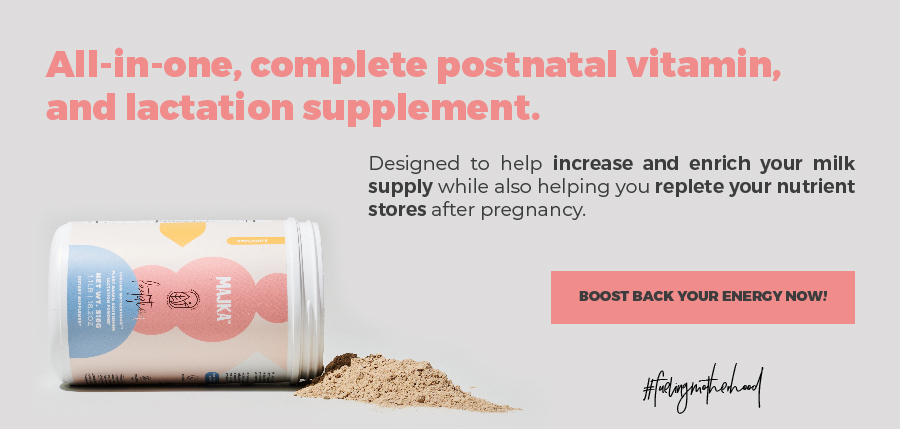
Between postpartum recovery and adapting to life with a baby, your routine makes an important turn after delivery and this can impact your relationship with your partner.
It’s important to keep in mind that the stage of your children taking all of your attention will eventually fade away and if you both wish to, your partner will still be there with you.
In the following, we will talk about what can happen to your relationship and intimacy after having a baby and ways to keep this process healthy and helpful to strengthen your bond instead of worsen it.
Is it normal to feel disconnected with my partner after having a baby?
Yes, but the fact that it is common, doesn’t mean that it’s a rule and that there isn’t a different way to go.
A newborn is a bunch of love, snuggle, discovery and amazement but it can take up a bunch of time, attention, money, sleep and can make you feel stressed, anxious; and even depressed. You can become a lot more tired and with less time to enjoy the activities that you used to enjoy, such as connecting with your partner.
Also, your partner may be the person who you spend most time with during this time and you can both feel this sort of way, which can make you take it out on each other.
Keep in mind that you are in this together, you are both becoming parents, taking up your energy and focusing on your baby’s well being which can take up time from your own well being…
But keeping yourself healthy and happy will help your family too. And feeling supported during this period is very important; talking about your worries, needs, wishes and thoughts can make a huge difference in your relationship, but the way to express this is also very important.
What is a healthy communication in marriage
Communication is key in any relationship, but especially in marriage, since you are two different persons living life together, it is normal to have disagreements and different points of views. While communicating, it’s important to keep in mind that you are on the same team, you both want a healthy and happy family, it isn’t a war but a project in which you are together.
Here are some tools that can help you to communicate with your partner:
- Avoid mind reading: it’s better to ask and be sure than to assume and be in doubt.
- Be specific about the issue: avoid words like “always” or “never” talk about the specific issue you are having.
- Use more “I” than “You” statements: explain how you feel instead of “attacking” your partner, feeling attacked may make you defend yourself instead of listening.
- Show gratitude: we tend to talk more about the negative and less about what we do like, it’s important to reassure your partner when he/she does something that you appreciate.
- Be aware of how you express yourself: it’s ok to be upset, but be careful not to be rude or offensive when doing so, let your partner know how you are feeling; and if you need to, take some time to cool off before getting into the conversation.
- Listen: sometimes we wish to be heard, but we do not listen, maybe your partner has something important to share as well as you do.
How can I make time with my partner after a baby
Each family has their own way to communicate and their routine, but here we share some tips that have been of help for some couples to make time with each other and bond after having a baby:
- Get some extra help: if you are able to, having someone to help you with the house chores or to take care of your baby once in a while, can give you time to rest, feel more calm and take up some time for each other.
- Share a daily activity that you both enjoy such as walking around the block to get some movement or cooking dinner.
- Return to a pre-baby activity that you both enjoy (while you get extra help or your baby is in a more accommodated sleep schedule) such as going out for a drink or watching movies together.
- When you are on a “date” avoid baby and duties talk, einsted, use this energy for affection, reconnection and enjoyment.
Sex after a baby
After childbirth, there isn’t an exact right time to get back to your sex life, it depends on the type of delivery and your own recovery; health care providers usually recommend waiting about six weeks since in the first weeks there is a bigger risk of having complications; and waiting can also give your body time and energy to fully recover.
Sometimes women experience some pain while having sex again since hormonal changes can make the vagina dry and tender; or from healing from delivery.
It’s important to talk to your partner about your feelings regarding sex, both of your opinions matter, and one of you may take it personal if you don’t seem like you want to have sex.
Understanding that you are overtired or in pain can make this feel less personal and can help you to find ways to be intimate, in which you do not feel any pain or discomfort.
Always keep your healthcare provider close to know how to treat any pain, discomfort or any health advice regarding your sex life.
Waiting until you feel ok to have sex doesn’t mean that you can’t have intimacy with your partner. You can always find ways to express affection that you both enjoy.
In Breastfeeding 101 we hope this information has helped you to learn more about the reasons why you may disconnect with your partner after having a baby and ways to deal with it to build a stronger bond.
We love to have you here and invite you to follow all of our content to learn more about this topics.
If your want to deepen more in the topic of how to connect with my partner while taking care of a baby, here are some of the sources that made this article possible:
- How Soon Can You Have Sex After Having a Baby? I News Medical Life Sciences
- How to babyproof your relationship I The Washington Post
- Recovering Sexuality after Childbirth. What Strategies Do Women Adopt? A Qualitative Study I National Library of Medicine
- Quality of couple relationship among first-time mothers and partners,during pregnancy and the first six months of parenthood I ELSEVIER
- Relationships after having a baby I NHS
- Sex after pregnancy: Set your own timeline I Mayo Clinic
- Stability and Change in Marriage across the Transition to Parenthood: A Second Study I JSTOR
- The Form and Function of Quality Communication in Marriage I JSTOR
- The magic of communication in marriage I First Things First
Annie Rueb






